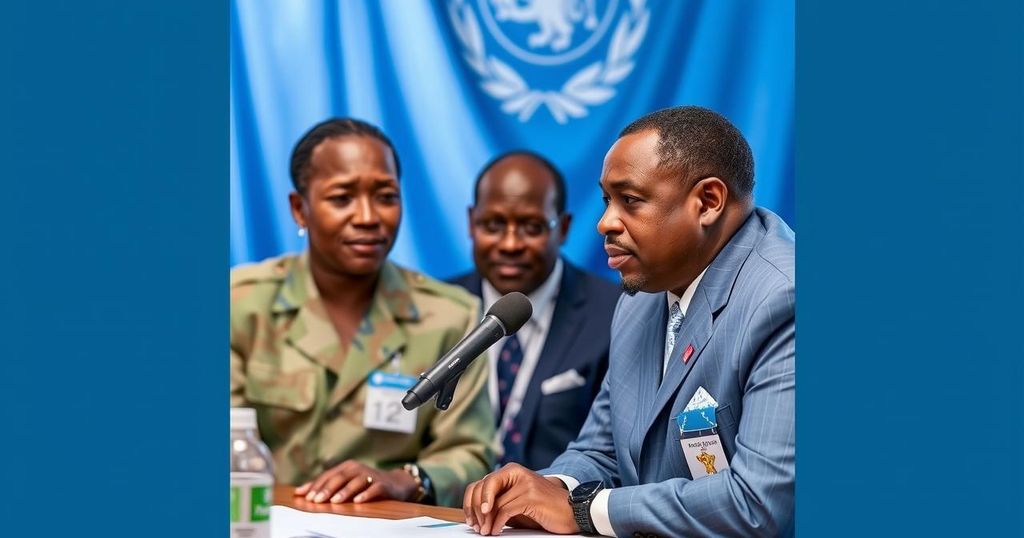UNMISS Urges Progress Toward Democratic Elections in South Sudan

UNMISS has called for evident progress toward democratic elections in South Sudan, with upcoming elections now set for 2026. Officials emphasize that time is running out for political leaders to fulfill their peace agreement obligations. Citizens express skepticism towards their leaders’ commitment to democracy, urging for immediate action rather than mere political statements. UNMISS aims to support the National Elections Commission while advocating for civic education and voter registration preparations.
The United Nations Mission in South Sudan (UNMISS) is urging for concrete evidence of advancements towards democratic elections in South Sudan. During a recent briefing to the United Nations Security Council, Nicholas Haysom, the special representative of the Secretary-General and head of UNMISS, impressed upon government officials that the period for extending the transitional government is rapidly closing.\n\nSouth Sudan is currently undergoing its fourth extension of the transitional period, with elections postponed to 2026. Rabindra Giri, acting spokesperson for the United Nations in South Sudan, articulated that the international community requires definitive proof of the commitment from local leaders and political elites towards establishing a democratic framework. The ongoing internal strife within South Sudan complicates the situation further and hampers progress, threatening not only national stability but also the wider East African region.\n\nUNMISS representatives warned that the timeline for political leaders to deliver on their responsibilities under the peace agreement is diminishing. “We must collectively seize the opportunity to make this extension the last and deliver the peace and democracy that the people of South Sudan deserve,” Mr. Giri emphasized. The sentiment among Juba’s citizens reflects dissatisfaction and skepticism regarding their leaders’ dedication to the nation’s progress, particularly in relation to peace and democratic reforms.\n\nActivists such as Nunu Diana, a women’s rights advocate, expressed feelings of despondency regarding the governance system. She remarked, “I think because of the extension, personally, as a young person, I have lost morale in the governance system of the country.” Fellow advocate Data Gordon echoed these sentiments, stating, “The time for political statements without tangible and time-bound action is over. For elections to take place as scheduled, the government needs to walk the talk.”\n\nIn response to these concerns, UNMISS is advancing its support for the National Elections Commission, focusing on civic education, voter registration preparations, and establishing a code of conduct for political parties and civil society. Mr. Haysom underscored the critical nature of time as a finite resource, declaring the present circumstances as South Sudan’s ultimate opportunity to fulfill its democratic promises. The mission calls for persistent international support while ensuring accountability from South Sudan’s leaders regarding their commitments.
The current political climate in South Sudan has been characterized by ongoing conflict and instability since the country’s independence in 2011. After years of conflict and delays in governance reforms, the transitional government has been given multiple extensions to prepare for democratic elections. The international community, particularly through the UN, is heavily invested in ensuring that South Sudan navigates towards establishing a democratic society. The repeated delays have raised concerns about the commitment of the political elite to implement necessary reforms and achieve peace, substantially impacting the citizens’ trust in their leaders and the overall development of the region.
In conclusion, the United Nations Mission in South Sudan is stressing the urgent need for genuine progress towards democratic elections within the country. As South Sudan prepares for yet another election extension in 2026, the emphasis remains on the necessity for tangible action from political leaders. The international community’s support and active involvement are crucial in ensuring accountability and fostering democratic values, as South Sudananees await substantive changes in their governance.
Original Source: www.voanews.com







